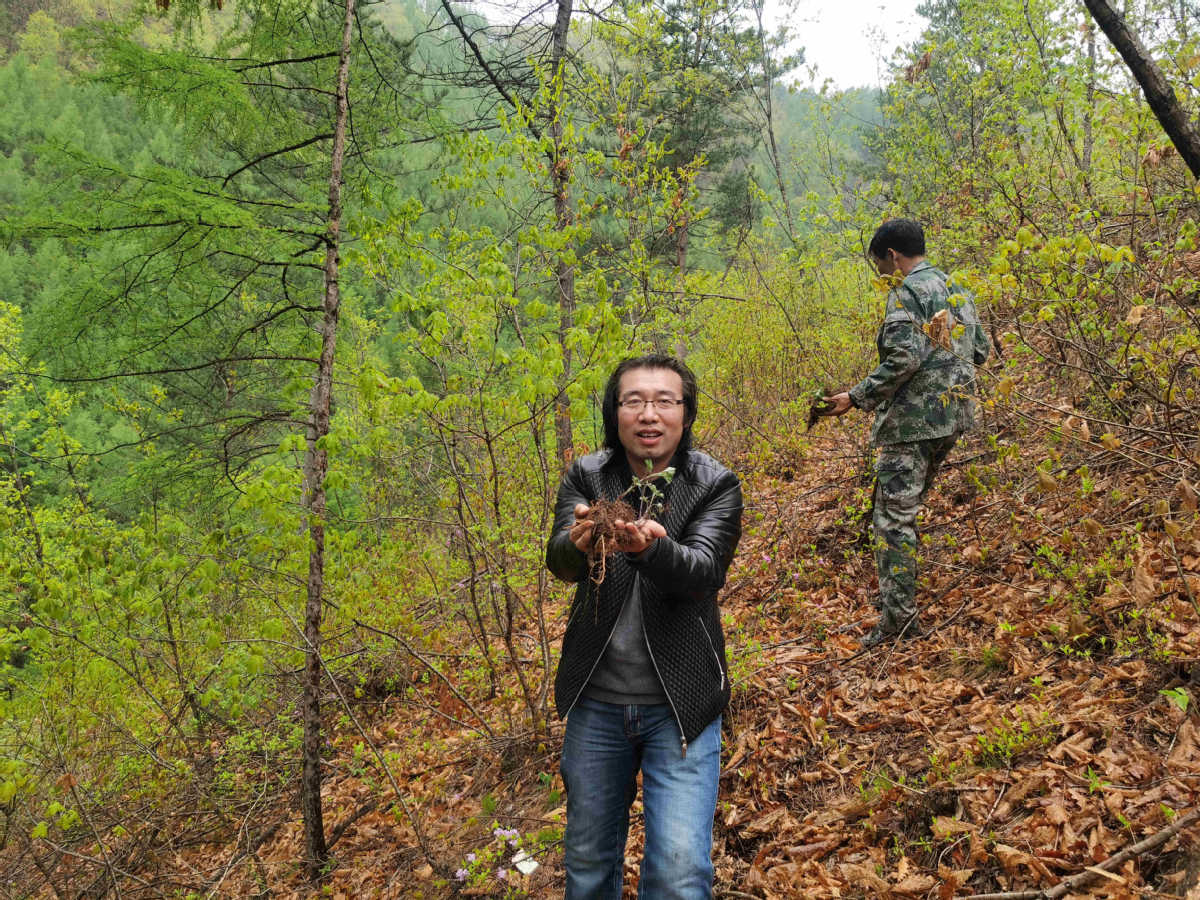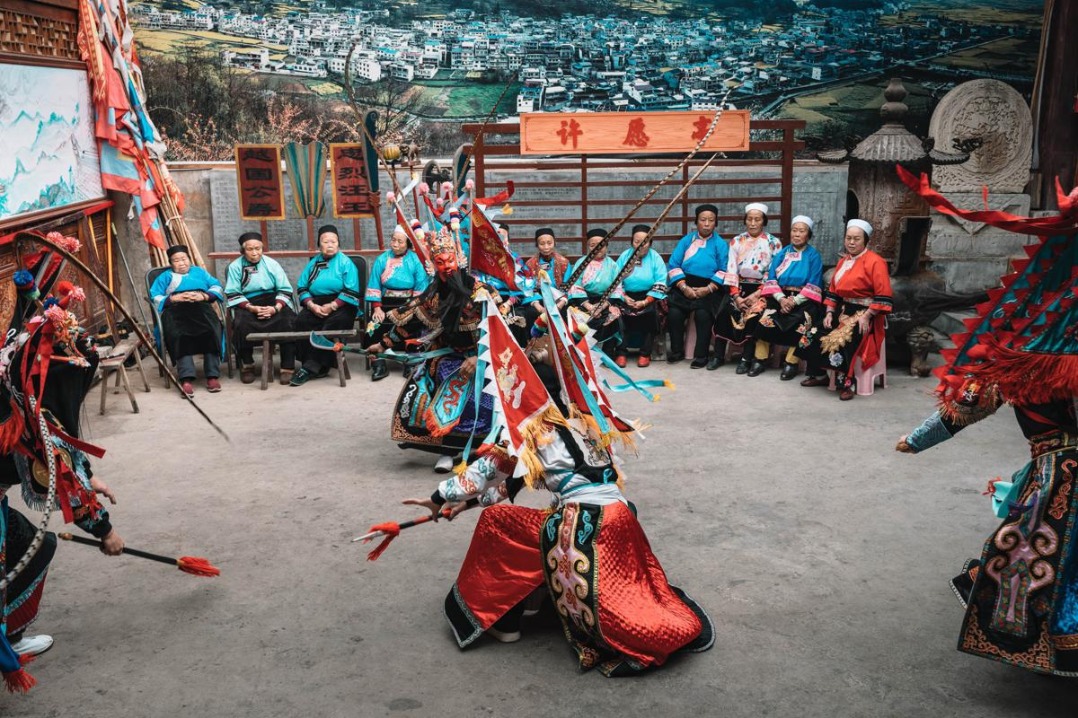Jilin man seeks growth of herbs, area tourism


TCM devotee cultivates mugwort while managing homestay in village near Changbai Mountains, hopes for State support
Over the past few years, Kang Jian has been trying to combine growing Chinese medicinal herbs with tourism, hoping to boost the vitalization of his rural hometown in Northeast China's Jilin province.
A former media worker in Changchun, the provincial capital, the 41-year-old sought treatment at a traditional Chinese medicine hospital after suddenly fainting twice in early 2017.
"I was not in good physical condition due to years of unhealthy living, staying up late, missing meals and not exercising," he said. "When I didn't improve even after visiting several hospitals, a friend suggested I try TCM."
Kang began to receive treatment at the hospital affiliated with Changchun University of Chinese Medicine. Doctors prescribed TCM and courses of acupuncture and moxibustion, a treatment in which dried mugwort is burned on specific areas of the skin.
"The practitioners not only treated my ailments, they also treated my overall condition. It worked well," he said. "There were clear changes, and my energy levels improved gradually during the year of treatments.
"I returned to the soccer field and was able to run as fast as I could 20 years ago, which would have been unimaginable before the treatment."
As a result, Kang became interested in TCM and spent time studying it.
He grew up in a village in Baicheng city, Jilin.
"Since graduating from college in 1999, I've been trying to make a better life for myself in Baicheng and Changchun," he said.
"But my career led to health problems. After recovering, I had the idea of following a more natural and healthy lifestyle."
At the end of 2018, he spent around 800,000 yuan ($124,000) on two houses in Songling village in the city of Baishan, turning them into a homestay with eight rooms for tourists.
The following spring, Kang started growing traditional Chinese herbs on abandoned land in the nearby mountains.
"Songling village is at the foot of the Changbai Mountains and is suited to growing Chinese herbs because of its high-altitude microclimate, especially wild mugwort, which is a well-known substance in TCM," he said.
"Also, the Changbai are famous for their pristine water and abundant natural resources. Naturalists think of them as an animal and plant gene bank."
However, Kang's new venture wasn't easy.
"The first difficulty was finding wild mugwort," he said. "I spent almost all of the spring and summer walking around the forest looking for it."
Each time Kang chose an area to search, he would stay deep in the mountains for four or five days, making sure he walked every inch.
He managed to find three wild mugwort varieties and is now successfully experimenting with cultivating them on a 0.7 hectare plot.
"Another difficulty was making them grow without pesticides," he said. "My father, who has been a farmer for decades, gave me a lot of help. After a number of experiments and failures, we finally succeeded."
Songling is famous for its snow-covered winter landscapes and country life, and it has been attracting more tourists in recent years.
Kang follows the traditional technique of making mugwort sticks using a stone mortar, and visitors to his small plantation can experience the process.
"I hope I can contribute to the integrated development of tourism and Chinese herbal medicine," he said. "I also hope I can introduce more people to TCM."
Kang plans to find new ways to promote mugwort in the future.
"We will focus on developing more products, such as foodstuffs, facial masks and essential oils," he said.
"I hope there will be more government support for the Chinese herbal medicine industry. The promotion of regulations and industrial standards would greatly help the development of the industry."
- 'Book of Songs' from Chinese imperial tomb proves oldest complete copy ever found
- Exhibition highlighting the 'Two Airlines Incident' opens in Tianjin
- Average life expectancy in Beijing rises to 83.93 years
- Energy drink overdose sends delivery worker to hospital
- GBA and Hainan deepening cooperation to boost innovation and sustainable growth
- Beijing mulls including the costs of embryo freezing and preservation in medical insurance






































